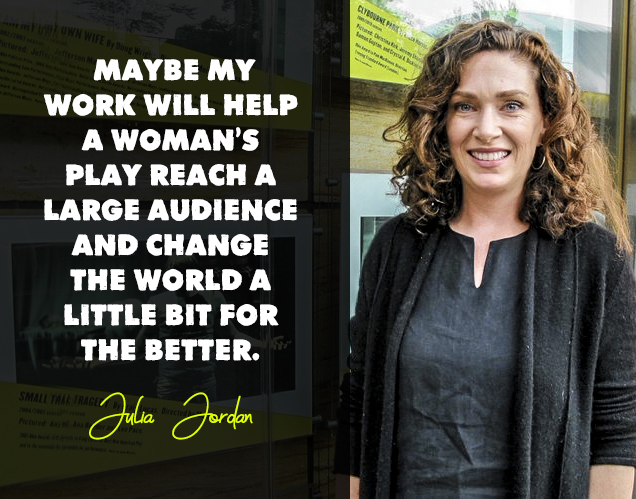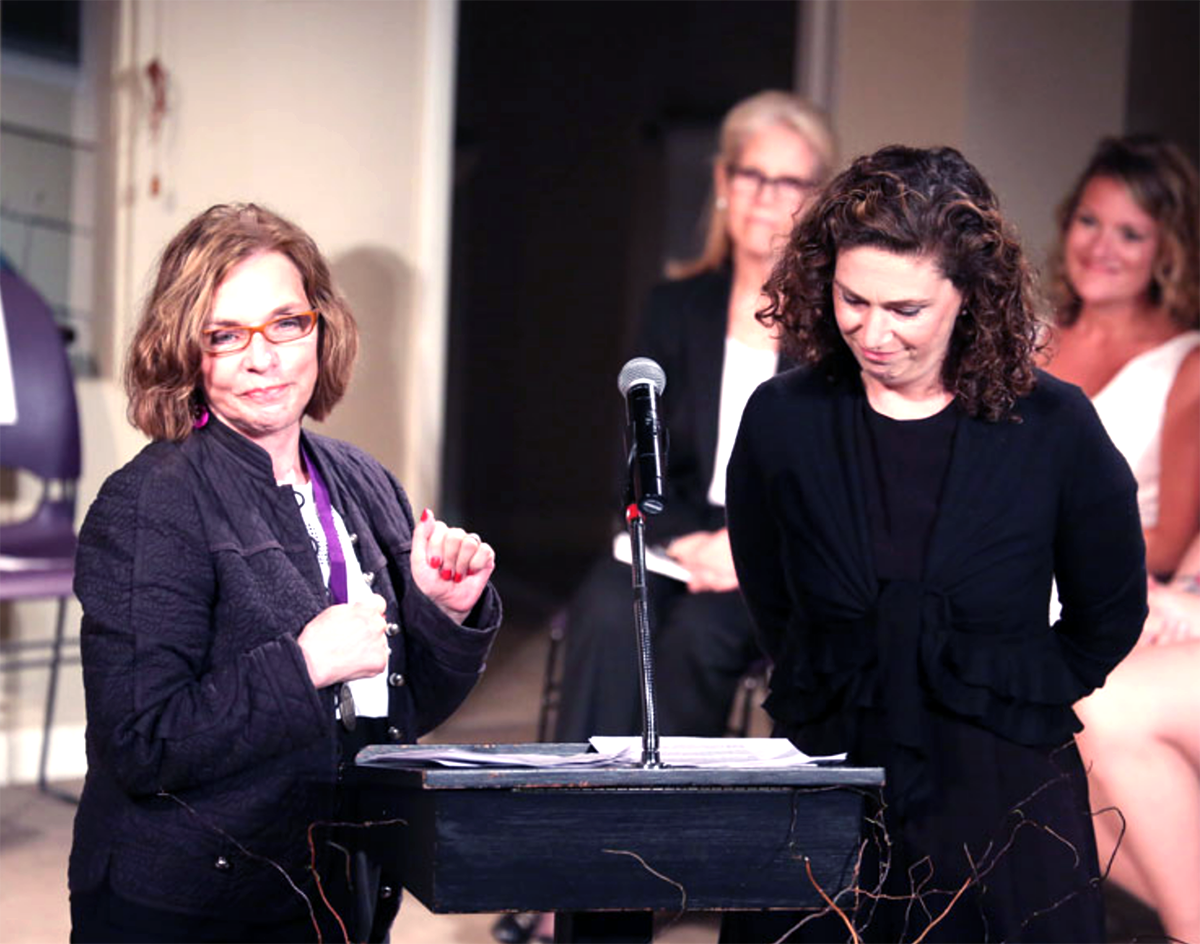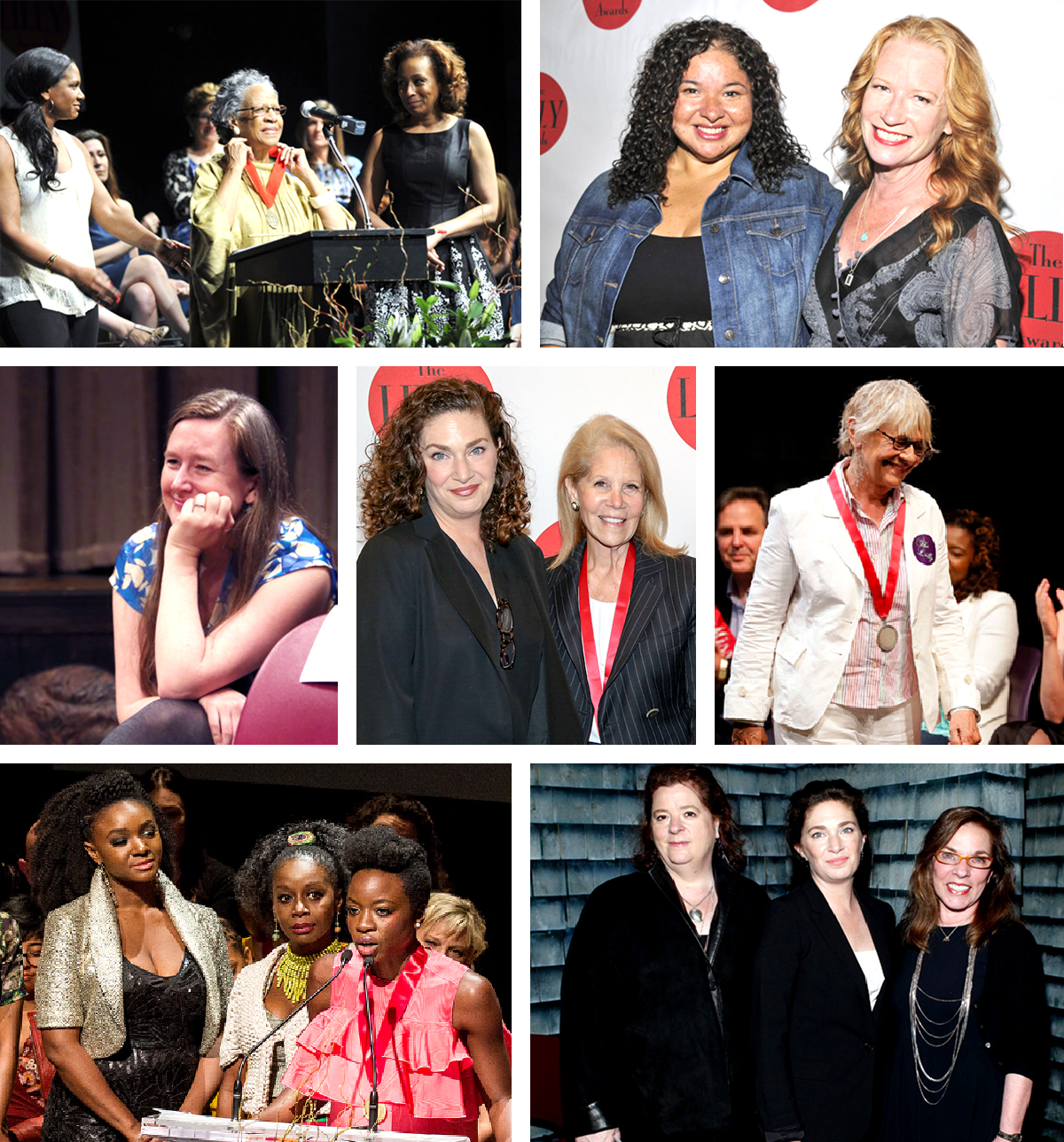Julia Jordan
I run an organization called “The Lillys”, named for Lillian Hellman who famously said “You have to write like the devil and act like one when necessary.” We promote, celebrate and fight for women in theater. It’s a little niche-y, I know. And I sometimes wonder why I put so much time into such a small thing. So few people even go to the theater. Even fewer write for it. There are bigger, more important, direr things to fight for than getting plays by women produced at the same rate as those by men. I know this. And yet, it consumes me, of course, because of my personal experience. It did start as a selfish thing.
I have never given an interview to promote one of my plays, where the headline and the bulk of the article didn’t end up focusing on the fact that I was a female writer who was actually getting a production. I’ve had Artistic Directors of Tony Award-winning regional theaters tell me that they would be more likely to produce my work if I would write something with a male lead because that’s what (they said) the audiences preferred. (There’s ample evidence that the opposite is true, by the way.) I’ve watched my male and female contemporaries forge extremely different paths. I’ve been out of school over twenty years, and I look around at the writing group we started so long ago, whose members have come and gone, and been added to…. We’re all about the same age and have been writing about the same amount of time. We were all accepted into the same grad programs. We’ve all won awards and we respect each other as equals. We all drag ourselves out on Wednesday nights year after year, to hear what the rest of the group thinks of what we slogged out the night before.
That magic insight could come from any one of the men or women there. They all have awards, and glowing reviews, but it is impossible to not notice that the majority of the men are making a living writing scripts for theater, tv, and film. They often have productions lined up for a play that they haven’t finished writing. The women write on the side of their money jobs and after the kids are in bed. They are often worried about whether they can continue to afford their apartment. They have piles of scripts in drawers that no doubt sit unread on artistic directors desks. The careers of male writers are relatively impervious to mixed reviews. Female writers careers seem to end before they begin if they don’t have a big hit right out of school. And perhaps most tragically, only those women who are married to male breadwinners have the luxury of becoming mothers. Most of the men are fathers, with a wife who absorbs the majority of childcare duties. And these women are successful. If you go to the theater, you have probably heard their names. Or used to hear their names. This is the kind of stuff we women writers have been bitching about in private for years. Ten years ago bitching was a release, then it wasn’t enough anymore. One thing led to another and The Lillys began. At first, it was just a party, an awards show for us and by us. Danai graced our stage, as did Frances McDormand, and Martyna Majok BEFORE she won the Pulitzer.
And then, I don’t know what happened. But it happened. Women wanted it to happen. They joined in, pressured me, and contributed funds and ideas and effort. The Lillys, ten years later are much more than just a show. We conduct “The National Count”, the largest and only on-going study of who is being produced nationally. Women now write about 30% of the plays on our nation’s stages.
That is double what it was ten years ago. But the missing women are, no surprise, women of color and mothers. So, the Lillys now fund a writing retreat for parents at SPACE on Ryder Farm. The children pick tomatoes, feed the chickens, paint and play and run. Parents are given the precious gift of time to write, and write, and write. The Lillys are also commissioning a statue of Lorraine Hansberry, which will be the sixth statue of a woman in NYC. (There are hundreds of men.) We are raising funds for The National Review of Theater, that will address the egregious lack of diversity in theater criticism, and we give away 80,000 a year in commissions and apprenticeships to female artists. Over fifty percent of our financial awards are to women of color, with special attention in the fields of design and directing, where they are most egregiously underrepresented.
Somewhere along this ten-year journey, I put my own writing off to the side and was okay with that. I’ve quieted the guilty feelings about spending time and effort on something insignificant for selfish reasons. I’ve come to realize that the plight of the female playwright may be a tiny, little, social problem, but it is a tiny piece of an epic global issue. It’s a sliver of a travesty that permeates the whole globe. At this point in history, forces are coming together from the worlds many, many corners, large and small, to address the state of women in the world. The American theater is my corner, my piece of the world and so it’s mine to fix. Your corner is yours.
Julia Jordan is the author of Smocking Lesson, Tatjana In Color, Boy, St. Scarlet and Dark Yellow among others. Lucille Lortel Fellow, Juilliard Fellow, Manhattan Theater Club Fellow, Kleban Award Winner, Jonathan Larson Award winner. Member of New Dramatists and the Dramatist Guild Council.
Learn more about The Lilly Awards





